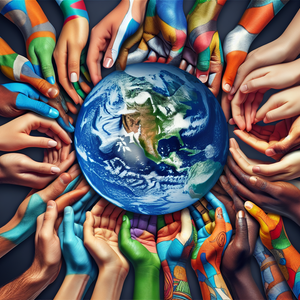Healing on the Move: How Traveling Therapists Adapt to Different Cultures

Cultural sensitivity is paramount in mental health therapy, especially when working with clients from different backgrounds. Traveling therapists often find themselves in positions where they must quickly learn and adapt to new cultural norms, beliefs, and practices that influence their clients' mental health. For instance, Dr. Lisa Rodriguez, a therapist who has worked in both urban settings in the United States and rural communities in Guatemala, highlights the importance of understanding cultural stigmas surrounding mental health. “In some cultures, discussing mental health is taboo,” she explains. “I have to approach these conversations with sensitivity and respect for their beliefs.” To effectively engage with clients, traveling therapists often engage in extensive research before arriving in a new location. This may include studying local customs, consulting cultural experts, or even participating in community events to gain insight into the social fabric. By doing so, they can tailor their therapeutic techniques, ensuring they resonate with clients' values and experiences. For instance, Dr. Rodriguez uses storytelling as a therapeutic tool, a method that aligns well with the oral traditions prevalent in many Latin American cultures, fostering a deeper connection with her clients.
Adapting Therapeutic Approaches
Traveling therapists also face the challenge of adapting their therapeutic approaches to align with the unique needs of their clientele. Cognitive Behavioral Therapy (CBT), for example, may be effective in one cultural context but may need modification in another. Dr. Michael Chen, who has worked extensively in Asia, shares his experience: “In some cultures, direct confrontation of negative thoughts may not be well-received. Instead, I focus on integrating mindfulness practices that are more culturally relevant and accepted.” Furthermore, therapists often incorporate local practices into their methodologies. This not only enriches their therapeutic repertoire but also helps build rapport with clients. For example, while practicing in India, Dr. Chen began to incorporate elements of yoga and meditation into his sessions, recognizing their significance in the local culture. “It was a game changer. Clients felt more at ease, and it opened up new avenues for discussion about their mental health,” he reflects.
Building Relationships Across Borders
Establishing and maintaining client relationships can be particularly challenging for traveling therapists. The transient nature of their work often means they have to quickly build trust and rapport with clients, which is essential for effective therapy. To facilitate this, many therapists employ strategies to create a welcoming environment. Dr. Aisha Patel, who has worked in both South Africa and Canada, emphasizes the importance of active listening and validation. “I invest time in understanding my clients' stories and backgrounds. It’s crucial for building trust, especially when they know I won’t be around for long,” she shares. Moreover, therapists often use technology to maintain connections with clients after they leave. Virtual therapy sessions via video calls or messaging apps have become increasingly popular, allowing traveling therapists to offer continued support and follow-up care. This approach not only enhances the therapeutic relationship but also ensures that clients feel supported even when their therapist is miles away. The advent of teletherapy has opened new doors, allowing therapists to bridge geographical gaps and provide ongoing assistance to clients who may need it.
The journey of a traveling mental health therapist is not merely about moving from one place to another; it is about embracing the richness of diverse cultures and adapting therapeutic practices to provide effective care. By prioritizing cultural sensitivity, modifying therapeutic approaches, and building strong relationships, these therapists exemplify resilience and commitment to their clients' well-being. As they traverse the globe, they not only transform the lives of those they serve but also enrich their professional journeys, creating a unique and impactful narrative in the field of mental health therapy. Through their experiences, traveling therapists remind us that healing is not confined to a single space; it is a journey that transcends borders, cultures, and personal histories. As the demand for traveling mental health therapist jobs continues to rise, it is clear that these professionals play a vital role in fostering mental health and wellness across the globe, ensuring that healing knows no boundaries. Their commitment to understanding and adapting to different cultural contexts not only enhances their therapeutic effectiveness but also nurtures a global community united in the pursuit of mental well-being.
Cultural Competence Trainer
Nonprofits, educational institutions, healthcare organizations
Core Responsibilities
Develop and deliver training programs focused on cultural sensitivity and competence for mental health professionals.
Conduct assessments to evaluate the cultural awareness of therapists and recommend areas for improvement.
Collaborate with organizations to implement culturally-informed practices in therapy settings.
Required Skills
Strong knowledge of various cultural norms and their impact on mental health.
Excellent communication and presentation skills, with the ability to engage diverse audiences.
Experience in mental health or social work, preferably with a focus on cross-cultural issues.
Telehealth Mental Health Counselor
Telehealth companies, mental health clinics, private practices
Core Responsibilities
Provide virtual therapy sessions to clients, utilizing video conferencing and other digital tools.
Assess client needs and develop personalized treatment plans that accommodate varying cultural backgrounds.
Maintain accurate documentation and secure communication protocols for client confidentiality.
Required Skills
Proficiency in telehealth platforms and digital communication tools.
Knowledge of ethical and legal considerations in teletherapy across different regions.
Experience in a specific therapeutic approach, such as CBT or mindfulness practices, adapted for virtual settings.
International Mental Health Consultant
NGOs, international healthcare organizations, government agencies
Core Responsibilities
Provide expert guidance to organizations looking to expand mental health services in diverse cultural settings.
Conduct cultural assessments to understand regional mental health issues and recommend tailored interventions.
Train local practitioners in culturally appropriate therapeutic techniques and practices.
Required Skills
Extensive knowledge of global mental health trends and cultural practices affecting mental health.
Strong analytical and problem-solving skills to address complex cultural challenges.
Fluent in multiple languages or experience working in multilingual environments is a plus.
Mindfulness-Based Therapist
Wellness centers, private practices, community health organizations
Core Responsibilities
Implement mindfulness and meditation techniques in therapeutic sessions to enhance client well-being.
Develop workshops and group sessions that focus on mindfulness practices tailored to specific cultural contexts.
Conduct research on the effectiveness of mindfulness-based interventions across different populations.
Required Skills
Certification in mindfulness-based therapy methods (e.g., MBSR or MBCT).
Strong understanding of the intersection between mindfulness and cultural beliefs.
Experience in individual and group therapy settings, with a focus on integrating mindfulness practices.
Traveling Behavioral Health Specialist
Mobile health clinics, government health services, disaster response organizations
Core Responsibilities
Deliver on-site mental health services in various locations, addressing the unique needs of local populations.
Adapt behavioral health interventions based on cultural assessments and client feedback.
Collaborate with local healthcare providers and community organizations to enhance service delivery.
Required Skills
Licensure in mental health counseling or social work, with experience in multiple therapeutic modalities.
Flexibility and adaptability to work in various environments and with diverse client groups.
Strong interpersonal skills to build rapport quickly with clients and community stakeholders.


